Share
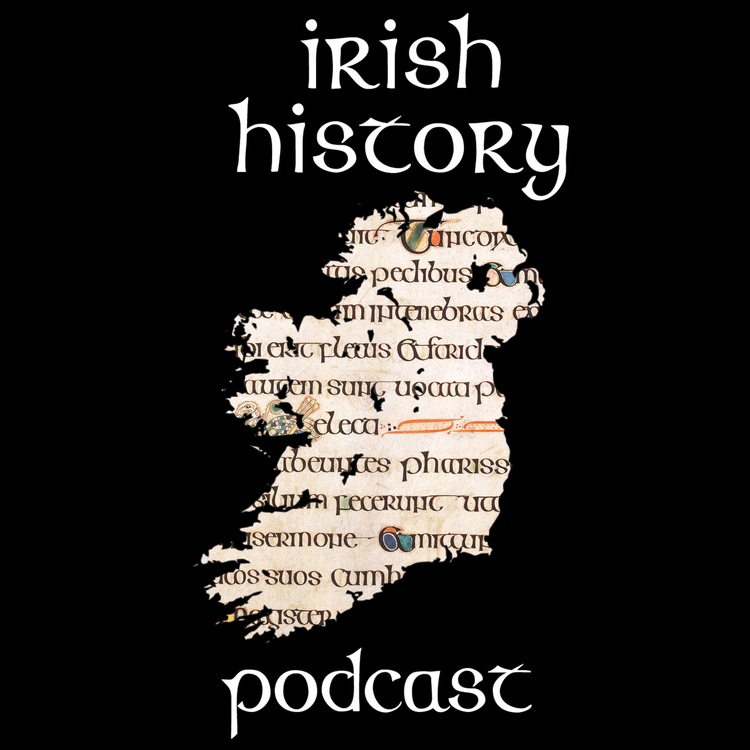
Irish History Podcast
(1169-70) The Norman Invasion IV. The Siege of Wexford and the Conquest of Leinster
On May 1st 1169, Robert FitzStephen a Norman Knight from Wales, finds himself on Bannow Strand, Ireland leading 300 Norman mercenaries. Their mission - to restore Diarmait McMurrough, the one time gaelic king of Leinster to power. However both they and Diarmait have much greater ambitions.
With a few days of arriving in Ireland the Normans are outside the walls of Wexford besieging what is one of Ireland's most important medieval towns. Although few know it at the time the Norman conquest is well underway. However its not all plain sailing for the Normans - before this show ends they will face the wrath of Ireland's most powerful king Rory O'Connor.
Become a supporter & access dozens of exclusive podcasts
Patreon www.patreon.com/irishpodcast
Acast https://plus.acast.com/s/irishhistory
📢June 2023 Update - New Walking Tour 📢
I am thrilled to announce my brand new walking tour in Ireland's oldest city, Waterford. Join me and explore 1,000 years of history from the Vikings to Cromwell & Strongbow to the Irish Revolution. Enhanced by wireless headsets 🎧 you will hear the sounds of the city through the ages and the words of the people who made history in Waterford. Tours take place each Saturday and places are strictly limited to 15 people. Book your place today at www.Irishhistorypodcast.ie/tours
*New Book: A Lethal Legacy - A History of Ireland in 18 Murders *
My new book A Lethal Legacy - A History of Ireland in 18 Murders is available for Pre-Order now. If you order your copy today at Easons and use the promo code FD10 you get a 10% discount
Easons https://www.easons.com/a-lethal-legacy-finbar-dwyer-9780008555993
Promo code FD10
More episodes
View all episodes
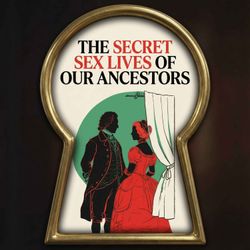
The Secret Sex Lives of our Ancestors
45:06|This episode includes discussion of sex and is not suitable for younger listeners.Sex has always been a key part of Irish life. Yet given its intimate and private nature it often leaves little trace in the historical record. One rare exception comes from the Presbyterian Kirk Session, a church court that kept detailed accounts of behaviour it considered sinful. These records open a unique window into how people in eighteenth century Ireland navigated desire, shame, romance and rule breaking.In this episode I am joined by Dr Leanne Calvert whose book Pious and Promiscuous: Life, Love and Family in Presbyterian Ulster uncovers the hidden sex lives of ordinary men and women in the 18th century. The conversation explores beliefs about sex, the reality of everyday relationships, courtship, affairs, pregnancy and the ways communities tried to control intimacy.Get your copy of Leanne's book Pious and Promiscuous: Life, Love and Family in Presbyterian Ulster herehttps://shop.ria.ie/products/piousLeanne's Blog: https://promiscuouspresbyterian.wordpress.com/Work profile: https://pure.ul.ie/en/persons/leanne-calvert/Sound by Kate Dunlea.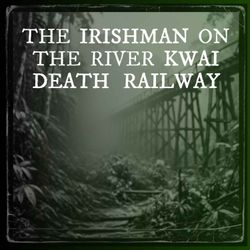
Railway of Death: The Irishman Who Survived Japanese Prison Camp in World War II
40:34|The forgotten story of the Irishman forced to work on Japan's Railway of Death which inspired the film The Bridge over the River Kwai.In 1942 Britain suffered one of its worst defeats when Singapore fell to the Japanese Army. Tens of thousands were taken prisoner including the Dubliner Don Kennedy. This began a brutal ordeal. Don was forced to help build what became known as Japan’s Railway of Death through the jungles of South East Asia.In this episode Don’s son Fergus tells the remarkable story of how his father became involved in constructing the notorious River Kwai railway. Fergus shares how his father endured starvation, disease and brutality in the jungles of South East Asia.Fergus has published Don’s story in his recent book From Ballybunion to the Kwai. You can get your copy here https://www.gillbooks.ie/history/history/ballybunion-to-the-river-kwaiSound by Kate Dunlea. Support the show at www.patreon.com/irishpodcast
The Battle of Vinegar Hill: The Last Stand of the 1798 Rebellion?
01:03:06|In the final episode of this series we follow the 1798 rebellion into its most dramatic and desperate days. As fear grips Dublin and battles erupt across Wexford and Ulster the future of Ireland hangs in the balance. The story details the major clash on the Avoca River at Arklow and then finally brings us to the slopes of Vinegar Hill where the fate of the rising is decided. This episode also sees the exiled rebel leader Wolfe Tone return as a French invasion force finally arrives altering events in unexpected ways.This all sets the stage for one of the darkest summers in Irish history as the island is subjected to a reign of terror that echoes the violence that swept through Paris in the bloodiest days of the French Revolution.Support the show: Patreon.com/irishpodcast Find a comprehensive reading list for the 1798 series: https://www.patreon.com/posts/138580354Map of key locations: https://www.patreon.com/posts/143849510Sound by Kate DunleaAdditional narration by Aidan Crow and Therese MurrayAdditional research by Stewart Reddin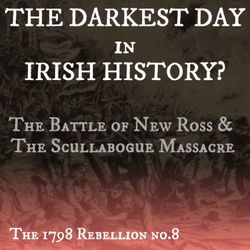
The Battle of New Ross and the Scullabogue Massacre. Irish History’s Darkest Day?
49:32|The Battle of New Ross was one of the bloodiest clashes of the 1798 Rebellion and within hours it was followed by the horrific Scullabogue Massacre. Together these events created a day long remembered for fire, terror and unimaginable suffering. In this episode we follow the rebels to New Ross, a strategically crucial town where the fighting would shape the course of the revolt. In the aftermath of the battle we examine the notorious Scullabogue massacre. This battle and the killings that followed would cast a shadow far beyond the 1798 rebellion and this episode reveals the complicated and uncomfortable truth behind them.As we continue the story of the 1798 rebellion we also travel to Belfast to explore how the revolt unfolded in the heartland of the revolutionary movement.A map showing the key locations is available here https://www.patreon.com/posts/143849510 (this is not paywalled)Check out this comprehensive list of texts and sources used in the series here https://www.patreon.com/posts/138580354 (this is not paywalled)Sound is by Kate Dunlea. Additional research is by Stewart Reddin with additional narrations from Aidan Crowe and Therese Murray.
Liberty or Death: The South Falls to the Rebels
49:43|As my series on the 1798 Rebellion returns, this is a great point to dive in to the story...In this episode we see major fighting break out as the south of Ireland erupts in revolt. Rebel forces sweep through the countryside in Co Wexford as loyalist strongholds fall one after another. However as the violence escalates carefully laid plans quickly unravel, and the first major battles left irish society reeling.This podcast explores how ordinary people found themselves caught up in events beyond their control, as the hopes of an Irish republic collided with the brutal reality of rebellion. From the streets of Dublin to the fields of Wexford, this episode traced how the southeast fell to the rebels in events that would transform Irish history.Written, Produced and narrated by Fin DwyerAdditional Research: Styewart ReddinVoice Actors:Aidan Crowe and Therese Murray.Sound by Kate DunleaSupport the show Patreon.com/irishpodcast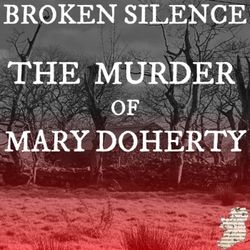
Broken Silence: The Murder of Mary Doherty
40:00|In March 1844, the quiet community of Culdaff in north Donegal was rocked by the brutal murder of fourteen-year-old servant Mary Doherty. As the Great Hunger loomed on the horizon, Mary’s tragic death was soon overshadowed by famine and emigration, her story fading into fragments of local folklore. However, in recent years, historian Angela Byrne has brought renewed attention to Mary’s forgotten life and this dark chapter in our history.In this episode, Angela Byrne joins Fin Dwyer to discuss the history behind Mary’s murder, as detailed in her new book Finding Mary. Angela vividly reconstructs the community Mary grew up in, the background to her murder, and the reasons she was killed. The episode also explores the world of rural Donegal on the eve of the tragedy and asks why Mary Doherty’s story remained untold for generations.You can get Angela’s book, Finding Mary, at https://www.fourcourtspress.ie/books/2025/finding-mary.Sound by Kate Dunlea.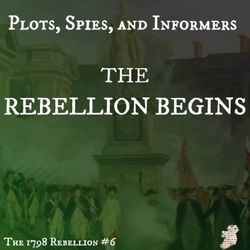
The Rebellion Begins: Plots, Spies, and Informers
44:20|In the early days of 1798, Dublin teetered on the edge of revolution. A shadow war raged between the United Irishmen and the British authorities, with the city’s fate hanging in the balance.This episode delves into the world of Edward Cooke, the spymaster at Dublin Castle, as he races to dismantle the revolutionary movement through a web of informers and secret agents. Meanwhile, leading rebels like Lord Edward Fitzgerald struggle to stay one step ahead, risking everything to keep the cause alive.As martial law is declared and terror sweeps across Ireland, the final days before the rebellion erupt into chaos, violence, and desperate gambles on both sides. Step into the heart of a city in crisis, where every shadow hides a secret and the first sparks of revolution are about to ignite.This is Episode 6 in my series on the 1798 Rebellion. The next installment, Part 7, will be available early and ad-free for show supporters next Monday week.Become a supporter today and get exclusive early and ad-free access at:Patreon: https://www.patreon.com/IrishpodcastSupercast: https://irishhistory.supercast.com/Written, narrated and produced by Fin DwyerSound: Kate DunleaAdditional Research: Stewart ReddinVoice Actors: Aidan Crowe & Therese MurrayContact me with your questions at info(at)Irishhistorypodcast(dot)ie.A list of sources for the 1798 Rebellion is available here: https://www.patreon.com/posts/138580354 (the post is not paywalled)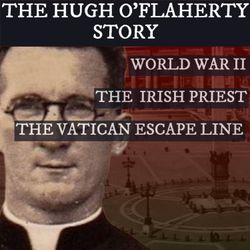
Hugh O’Flaherty & The Vatican Escape Line in World War II
01:12:29|This special episode of the Irish History Podcast is made in partnership with An Post.In Nazi-occupied Rome, the Irish priest Hugh O’Flaherty risked everything to save thousands from certain death. By running a secret escape line, O’Flaherty became a lifeline for those facing persecution so much so that he became a wanted man by the Gestapo.Despite the danger, he managed to save thousands from the Nazis.In this episode, I share his remarkable story, with insights from novelist Joseph O’Connor, author of the Rome Escape Line Trilogy, Jerry O’Grady of the Hugh O’Flaherty Memorial Society, and filmmaker and O'Flaherty's grandniece, Catherine O’Flaherty.To mark Monsignor Hugh O’Flaherty’s extraordinary life, An Post, Ireland's Postal Service, has released a new commemorative stamp and First Day Cover. They are available at anpost.com/shop or at selected post offices.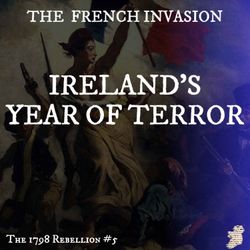
The French Invasion: Ireland’s Year of Terror?
39:18|This episode covers one of the most famous events in our history. It’s part of the 1798 Rebellion series, but you can dive straight in if you don't want the gripping backstory!In the closing months of 1796, Ireland was gripped by fear and uncertainty. This episode sees an invasion force of battle-hardened French veterans arrive off the Irish coast, inspiring hope and fear in equal measure.Meanwhile, a brutal campaign of repression sweeps Ulster as the British authorities unleash state terror on the revolutionary movement during a campaign known as the Disarming of the North.This episode also marks the first major violence between Crown forces and the wider populace.This is Episode 5 in my series on the 1798 Rebellion. The next instalment, Part 6, will be available early and ad-free for show supporters next Monday.Become a supporter today and get exclusive early and ad-free access at:Patreon: https://www.patreon.com/IrishpodcastSupercast: https://irishhistory.supercast.com/Written, narrated and produced by Fin DwyerSound: Kate DunleaAdditional Research: Stewart ReddinVoice Actors: Aidan Crowe & Therese MurrayContact me with your questions at info(at)Irishhistorypodcast(dot)ie.A list of sources for the 1798 Rebellion is available here: https://www.patreon.com/posts/138580354 (the post is not paywalled)